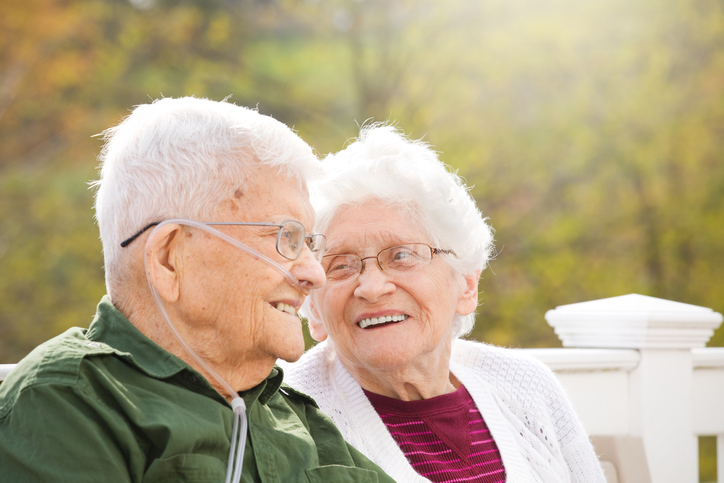
Compassionate Nursing Services shares important information on the four stages of COPD.
Since as many as 11 million individuals in the United States alone presently diagnosed with COPD (chronic obstructive pulmonary disease), we at Compassionate Nursing Services are familiar with the complexities and struggles connected with the airflow restrictions – and as a result, the lifestyle restrictions – that so many seniors with the disease face every day. It’s critical for us as caregivers, and for family members who are also providing care, to recognize what to expect in each stage of this progressive disease, and how to assist those with COPD effectively manage their condition and live life to their fullest potential.
Providing the top home health care St. Louis families trust, we have outlined the four stages of COPD below for your understanding, in conjunction with the guidelines from the Lung Institute on steps you should take to be sure your senior loved one continues to be as healthy as possible.
Stage 1: Mild COPD
During this phase, it may not even be obvious that there’s a problem other than living with some coughing and mucus, and minimal breathing limitations when completing daily activities. While the symptoms may appear minor, it’s important for the senior to see the physician as soon as possible, so that if a COPD diagnosis is confirmed, a treatment plan can be developed. The physician may prescribe medications as well as lifestyle adjustments – particularly quitting smoking, maintaining a healthy diet, and exercising. Alternative treatment options, such as acupuncture, chiropractic care, and cellular therapy, may also be tried.
Stage 2: Moderate COPD
In moderate COPD, coughing and mucous are increased, while airflow becomes more constricted. Lung capacity in this stage has fallen to anywhere between 50 and 79%, and physical activity renders the senior feeling exhausted. Medications will likely need to be altered during this stage, and pulmonary rehabilitation might also be encouraged by the doctor, helping the individual improve breathing efficiency.
Stage 3: Severe COPD
By the time a senior reaches the severe stage of COPD, problems will have intensified and considerable impairment of lung function is encountered. Lethargy and breathlessness increase, making it daunting for the senior to remain active, and numerous medical appointments may be necessary. Additional pulmonary screenings will help the physician track the progression of the disease and to add in additional treatment options to increase quality of life, such as oxygen, inhalers, and bronchodilators.
Stage 4: End-Stage COPD
In the end stage of COPD, lung functionality has dropped to 30% or less, and oxygen therapy will be needed. Simple activities of daily living become very hard or impossible to accomplish without exhaustion and breathlessness. The doctor will want to keep a close eye on the individual during this stage, modifying the treatment plan to help the person maintain the highest possible quality of life. Activities such as tai chi or yoga could be encouraged to help the person stay active while remaining comfortable.
One of the most effective ways to help seniors with COPD, and the families who care for them, is by partnering with a professional home care agency, such as Compassionate Nursing Services. Providing the highly skilled and compassionate home health care in St. Louis and surrounding areas, we’re helping those with COPD by:
- Preparing nutritious meals according to any dietary restrictions
- Providing safe, accompanied transportation to medical appointments and procedures
- Helping seniors engage in physician-approved exercise routines
- Keeping a clean home environment
- Providing warm, caring companionship
- And so much more
Contact us any time at 314-432-4312 to learn more about our exceptional elder care services.
